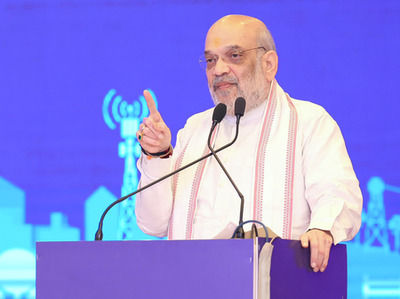
The Union government on Wednesday issued a notification confirming the elevation of Bombay High Court Chief Justice Alok Aradhe and Patna High Court Chief Justice Vipul M Pancholi as judges of the Supreme Court. The appointments were cleared in record time, within 48 hours of the collegium passing its resolution.
However, the move has sparked dissent from within the collegium itself, with Justice B V Nagarathna warning that Justice Pancholi’s appointment would be “counter-productive” and could undermine the credibility of the system of judicial appointments.
Justice Pancholi in line to become CJI
Once elevated, Justice Pancholi will eventually be in line to assume the position of Chief Justice of India for a term of nearly 18 months following Justice Joymalya Bagchi’s retirement in May 2031.
Union Law Minister Arjun Ram Meghwal, announcing the appointments on X, said the President, after consultation with the Chief Justice of India, had approved the appointments, paving the way for the two chief justices to take oath as judges of the apex court.
Notably, the collegium’s resolution, uploaded on the Supreme Court’s website, made no mention of the fact that Justice Pancholi’s name was recommended by a 4–1 majority.
Justice Nagarathna’s strong dissent
According to PTI, Justice Nagarathna, the only woman judge currently serving in the Supreme Court, recorded her dissent over the recommendation of Justice Pancholi. The five-member collegium that met on August 25 consisted of Chief Justice B R Gavai and Justices Surya Kant, Vikram Nath, J K Maheshwari and Nagarathna.
She argued that elevating Justice Pancholi, despite his lower seniority and the circumstances of his earlier transfer from the Gujarat High Court to the Patna High Court, would be “counter-productive” for the judiciary. She further noted that pressing ahead with the appointment risked eroding “whatever credibility the collegium system still holds.”
Sources told PTI that Justice Nagarathna emphasised the transfer of Justice Pancholi in July 2023 was not routine but a deliberate decision reached after consultations with senior judges, who were unanimous in their concurrence. She also raised concerns regarding regional representation in the Supreme Court, pointing out that Gujarat already had disproportionate representation.
NGO slams collegium’s lack of transparency
The Campaign for Judicial Accountability and Reforms (CJAR) also criticised the decision, stating: “The CJAR notes with dismay the recent collegium statement of 25th August as uploaded on the Supreme Court website, which makes a mockery of the earlier resolutions with respect to standards of transparency in judicial appointments.”
Referring to Justice Nagarathna’s dissent, the NGO added: “As reported in the media, the collegium took a 4-1 split decision with respect to the elevation of Chief Justice of the Patna High Court, Justice Pancholi, as Judge of the Supreme Court. It is not clear what has swayed the Supreme Court collegium in recommending Justice Pancholi to the Supreme Court, since Justice Pancholi is not merely the third judge from Gujarat to be elevated to the Supreme Court, (disproportionate to the size of the Gujarat High Court and leaving various other High Courts unrepresented) but he is also 57th in all India seniority list of High Court judges.”
-
Kerala BJP Vice Prez Krishnakumar Denies Sexual Harassment Allegations, Calls Them Politically Motivated

-
Himachal Pradesh Debt Nears ₹1 Lakh Crore, Sukhu Govt Admits Heavy Dependence on Centre

-
Commonwealth Games 2030: PM Narendra Modi, Union Cabinet approve India’s proposal for bid to host CWG, THIS city put forward as host

-
Made on budget of Rs 45 crore, this film features no big actors, turned out smashing blockbuster, earned 1144% profit, movie is…, lead actors were…

-
Border villages being developed as key security tools: HM Amit Shah
